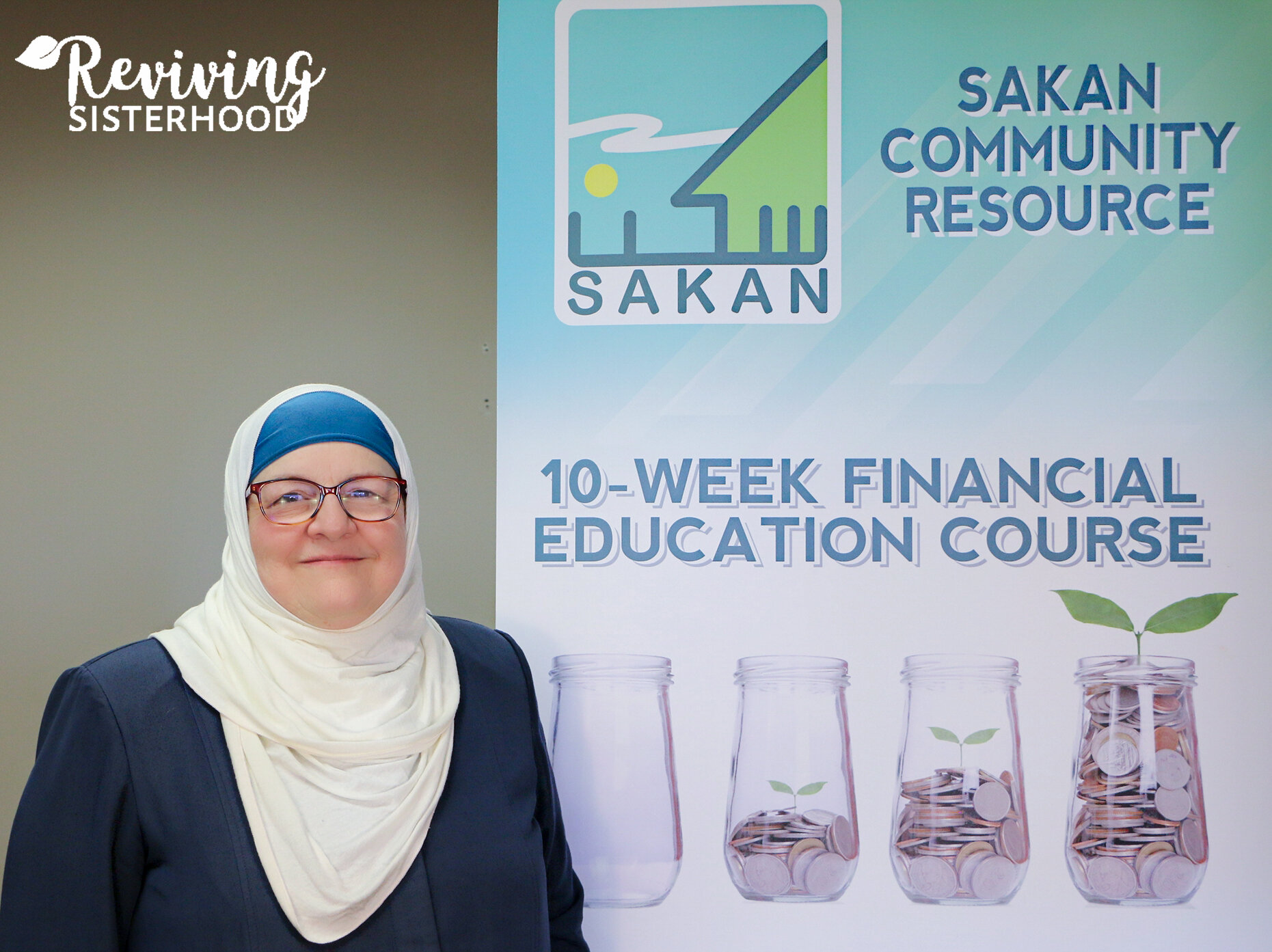Johanna Osman: Fighting for Islamic Compassion and Cooperation in Finance
“Practices like asset-based lending are not new inventions—they are only being rediscovered in the modern world.”
Raised by a divorced mother during the 1960s and 70s, Johanna Osman realized at a young age that single women were up against many barriers. Financial freedoms that we now take for granted, such as opening a credit account and purchasing a home mortgage, were inaccessible or only available at much higher rates than those offered to men.
Johanna watched the second wave of the feminist movement fight for women’s liberation in the home, in the workplace, and across society. Meanwhile, she had embarked on a journey to find her feminist values represented in faith.
Her mother, knowing that Johanna was searching for her spirituality, gave her an encyclopedia of world religions when she graduated from high school. She read the book cover to cover and found herself captivated by an entry in the middle: Islam.
Not only did the basic tenets of the faith make sense to her, but Johanna was also drawn to the emphasis on the equality of women in Islam.
After learning more at halaqas—study circles about Islam and the Qur’an—she decided to convert. She says, “It took me a while, but after a couple events and a couple questions, I took my Shahada,” the Islamic declaration of faith.
As a new Muslimah, Johanna wanted clothing that would express her faith while affording modesty. At the time, there were few modest fashion options available in the United States, leaving many desperate women to modify bathrobes and nightgowns for their daily wardrobe.
Fortunately, Johanna came from a line of seamstresses and had been taught by her mother and grandmother how to sew. After making her own clothes and hearing from other women who wanted accessible modest clothing, she started her own business called The Hijab Co. For Johanna and her sisters, the company “promoted pride in our identity during the first wave of anti-Muslim intimidation in the 1980s and 90s,” she says. Over six years, its mail-order list topped 3,000 and included three countries.
Johanna had a lot to learn as a new business owner, from clothing manufacturing to marketing.
She also found herself delving into the complexities of Islamic financial management: “The question was, how do you bring money into your startup company without getting a loan from a bank that you pay back with interest?”
Interest, also known as riba in Arabic, is prohibited under Sharia law because of its exploitative nature. Recognizing that riba can be used in unequal, usurious exchanges, Islamic finance sanctions only transactions that are equitable and that protect each stakeholder’s rights. In the Western world, however, most financial institutions rely on interest-based lending—making it difficult for Muslims to access loans and other services.
Although she had to close The Hijab Co. after divorcing, remarrying, and moving from Ohio to Minnesota, Johanna continued working with representatives from her bank, whom she encouraged to learn about Islamic finance. She connected her bankers with scholars such as Dr. Yusuf Talal DeLorenzo, a member of the Sharia Board for the Accounting and Auditing Organization for Islamic Financial Institutions (AAOIFI), who helped the bank set guidelines that would ensure compliance with Sharia law.
As the bank rolled out these new guidelines, Johanna organized a gathering for the Muslim community to learn about Sharia-compliant banking and meet Dr. DeLorenzo. “There were 30 people in that room who were interested in Islamic finance,” remembers Johanna.
Community members wanted to know about business loans, employee benefits, personal investments, and much more. What was supposed to be a quick meet-and-greet turned into a three-hour conversation.
“We saw that something needed to be done, that these concerns needed to be addressed,” says Johanna. “We needed to form an organization.”
As the group came together, one particular need emerged as the most urgent: navigating residential mortgages and purchasing homes without interest. “For many families, especially those with several children, there are no rentals left that are affordable and large enough,” Johanna says. Over the years, these families end up paying in rent the equivalent of the cost of a home, but concerns about riba and interest-based lending deter them from becoming homeowners.
That was the birth of Sakan Community Resource, named after an Arabic word whose roots mean “home,” “stability,” and “peace.” The organization’s name reflects “exactly what we do,” says Johanna, “because unless you have that stable home, you can't find peace. You're always agitated. You're always alert for what could go wrong.”
Johanna and the rest of the team at Sakan began their work by identifying companies that offered zero-interest home mortgages that were recognized by Islamic scholars. But when Sakan started training and connecting families with these companies, Johanna realized that “nobody's been able to save anything. So many families, stuck in a perpetual rental-assistance cycle, don't have down payment money.”
So, for their first two years, Sakan focused on raising funds. When they launched their down payment assistance program, they were ready to give out $10,000 zero-interest loans to families. “Over the next two years, we gave out 22 of those loans,” says Johanna.
The number of homes purchased in Minnesota with zero-interest mortgages skyrocketed. Johanna says, “The numbers were making a big impression, and people were paying attention.” Lending competitors noticed the new wave of homeownership and wanted a slice of the pie.
Even as many lenders and banks have become eager to bring in new Muslim clientel, some struggle to envision what alternatives to interest-based lending look like in practice. Johanna often finds herself acting as the bridge between Islamic law and traditional Western finance. “My job is to explain to everybody that asset-based mortgages are fair and honest and to show that the stakeholders are sharing in the risk and sharing in the benefits,” she says.
During the COVID-19 pandemic, Johanna is putting her sewing skills to good use. She’s made more than 1,000 masks in the past year and donated many to organizations such as Iska.
Practices like asset-based lending, which uses an individual’s assets as collateral, date back centuries. Johanna explains, “these are not new inventions—they are only being rediscovered in the modern world.”
Thanks to her efforts, three zero-interest home mortgage companies have opened new offices in Minnesota. With Sharia-compliant financial practices increasingly widespread and mainstream, even non-Muslims have become interested in these alternatives, which offer less predatory, more equitable lending. And, Johanna says, “they're more resilient across craziness, like the COVID-19 pandemic, than conventional systems.”
By infusing Islamic values of equality, fairness, and compassion into Western models, Johanna is transforming our financial system as we know it. Her advocacy comes as a surprise to herself: “I'm like the textbook example of the introvert,” she says. “Even a few years ago I wouldn’t have done this.”
But Johanna continues to feel called to use her privilege for good, to lend her voice for change. “I’m a white lady without an accent. If I’m calling on the phone, you don't know who I am,” a position that she frequently uses to her advantage—and to her community’s advantage.
Johanna believes in a society where financial comfort comes with trust, cooperation, and interdependence. Where we don’t have to choose between what we need materially and what we believe spiritually. Where values intersect with practices.
Unfaltering community leader and unstoppable changemaker, Johanna is our Shero.





